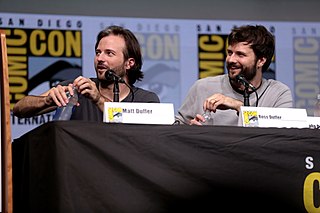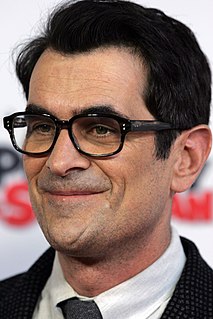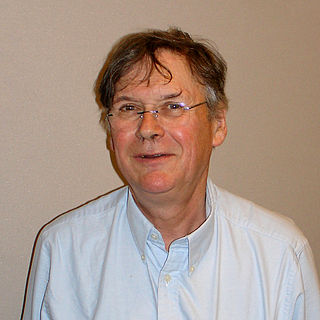A Quote by Ross Duffer
What I liked about 'Get Out,' which is so rare, is that there's just as much focus on getting to know and care about these characters on top of the film being clever and scary.
Related Quotes
You couple that with how I looked when I was younger, and growing up... The voice is not quite breaking. It's awful. No, I don't enjoy that at all. But that's one of the things people love and find so endearing about the Harry Potter series, and why they've lasted so long. Because people have grown up with us, and they care about the characters. They're not just some characters in the film, they're people you can relate to, and you care about, and you grew up with, and when they die in this film, people feel it!
You matter as much as the things that matter to you. And I got so backwards trying to matter to him. All this time, there were real things to care about: real, good people who care about me, and this place. It's so easy to get stuck. You just get caught in being something, being special or cool or whatever, to the point where you don't even know why you need it; you just think you do.
I feel like I'm being put inside a box, and I'm not necessarily getting a chance. Like I'm not getting the shot that I deserve. So that's what Rare is about 'cause I feel because I am the way that I am, and I don't necessarily fit the mold of a lot of different artists that's out, it's like I'm not getting the chance to show what I can do. So, that's basically all the frustration of that, and everything is pretty much Rare for me anyway.
When I'm writing a script, I don't worry about plot as much as I do about people. I get to know the main characters - what they need, what they want, what they should do. That's what gets the story going. You can't just have action, you've got to find out what the characters want. And then they must grow, they must go somewhere.
You want to get to the top of the cliff. But that's not what you focus on immediately. You focus on the next ledge just beyond your reach, because you need to do one clever thing to get up there. And then, once you get there, you do it again. A lot of this is rather boring and not very glamorous. But you can't jump cliffs in a single bound.
I sometimes get asked: 'How come the men in your stories don't have such strong characters?' And I'm like: 'I don't care.' I just want to find out about all the different lives a woman can live. But my feminism has never been against men. It's not erasure; it's just they're not the focus. In real life, they're quite nice.
The best morals kids get from any book is just the capacity to empathize with other people, to care about the characters and their feelings. So you don't have to write a preachy book to do that. You just have to make it a fun book with characters they care about, and they will become better people as a result.
The old saying of work hard, play hard really works for me. For me it's all about focus. To get the Fire Starter Sessions digital book out it was about three months of intense focus. I let my friends know that I probably wouldn't be hanging out of returning their phone calls. It wasn't about doing the dishes, I ordered a lot of pizza, and I just completely put myself in the creative bubble.
I don't want to know about the lives of other actors and I don't want people to know too much about me. If we don't know about the private lives of other actors, that leaves us as clean slates when it comes to playing characters. That's the point, they can create these other characters and I can believe them. I think if you're a good enough actor, that's the way to longevity in the film business. Keep everybody guessing.
I think too much is known about me already. I think biographical information can get in the way of the reading experience. The interchange between the reader and the work. For example, I know far too much about Norman Mailer and Kurt Vonnegut. Because I know as much as I do about their personal lives, I can't read their work without this interjecting itself. So if I had it to do over, I'd probably go the way of J.D. Salinger or Thomas Pynchon. And just stay out of it altogether and let all the focus be on the work itself and not on me.

































